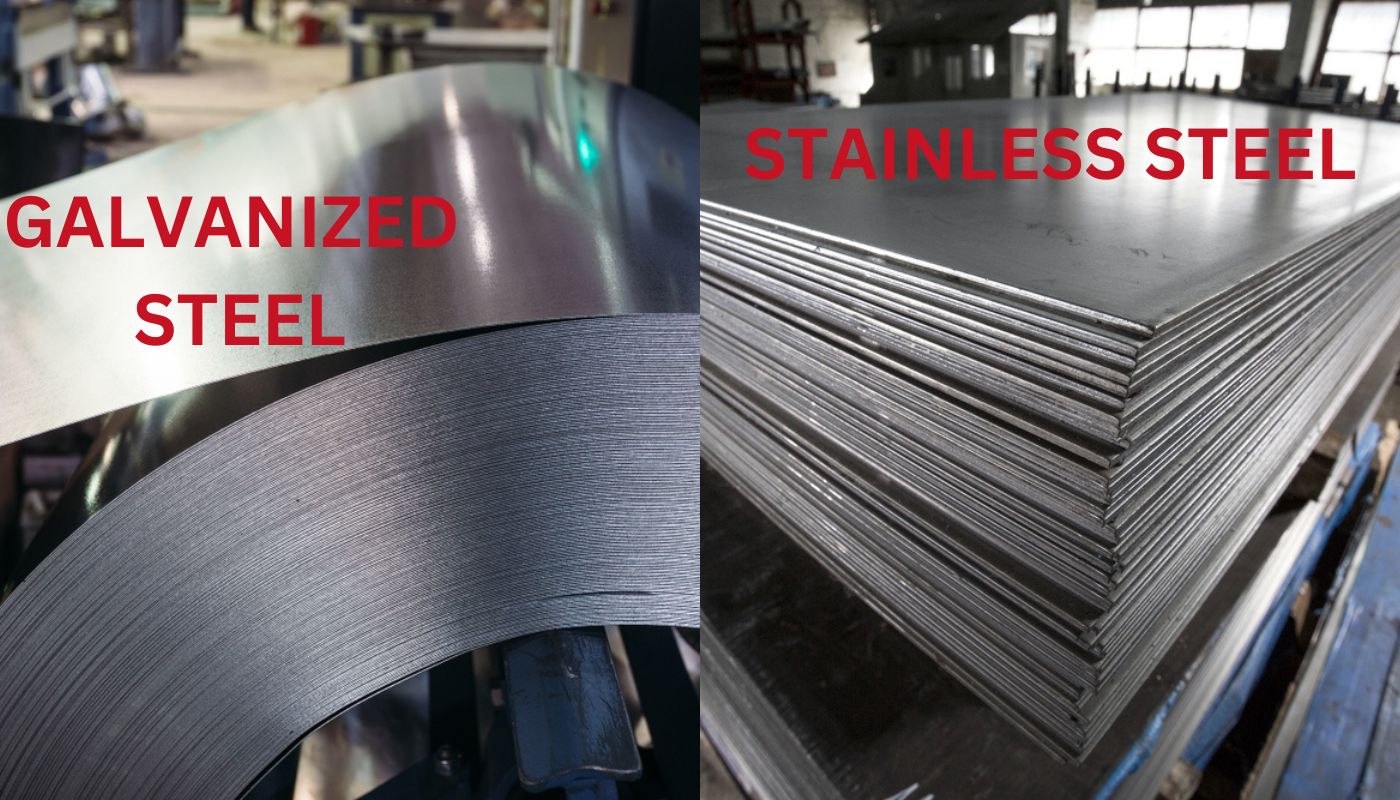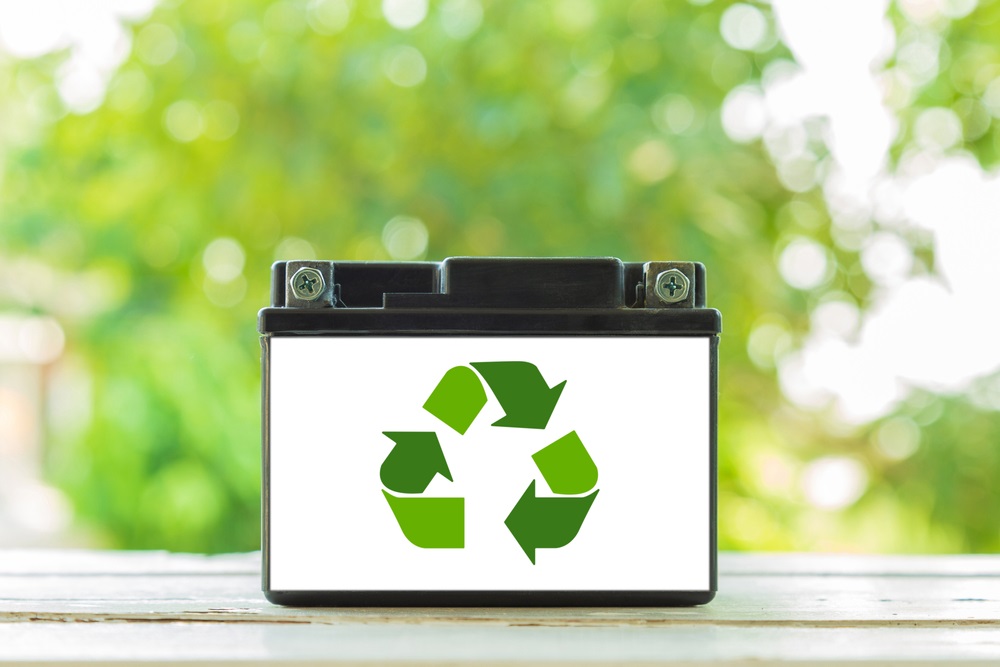Complete Understanding of Stainless Steel’s Corrosion-Resistant
May 18, 2023
GALVANIZED STEEL VS. STAINLESS STEEL
June 6, 2023Can We Recycle CAR BATTERIES?

The challenge of car battery recycling has become an urgent matter in today’s society when environmental sustainability is becoming of utmost significance. Understanding the importance of car batteries and the available numerous types is essential as we dive deeper into the world of auto technology.
In this informative article, we’ll dig into the deep features of car batteries, highlight the value of car battery recycling, examine the recycling procedure, and talk about the possibility of creating new batteries from recycled components. Come along with us on this informative tour of the recycled car battery industry!
Car Battery | Function & Importance
The engines that power the heart of our cars are car batteries. The electrical energy needed to start the engine and operate the vehicle’s electrical systems is provided by these little but formidable devices, which play a key role.
They serve as a dependable source of energy, delivering electricity to the air conditioner, radio, lighting, and several other electrical parts. Our cars wouldn’t be able to move without a working battery. It is impossible to overstate the importance of a car battery in keeping a contemporary vehicle running.
Types of Car Batteries
Different varieties of car batteries are available, each with a unique set of benefits and drawbacks. Lead-acid batteries and lithium car batteries are the two main types of car batteries that are predominant on the market.
Understanding the features and contrasts between these two categories is crucial to understanding how to recycle car batteries.
Lead-Acid Battery:
For many years, lead-acid batteries have been the standard option for generating energy for vehicles. They are made up of lead plates submerged in an electrolyte of sulfuric acid. Lead-acid batteries are renowned for being inexpensive, durable, and capable of delivering large currents.
These batteries are strong and trustworthy, able to tolerate high temperatures, and can deliver a steady flow of electricity. They are hefty, have little carrying capacity, and contain dangerous elements that need to be handled and disposed of carefully.
Lithium Car Battery:
Due to its high energy density and extended lifespan, lithium car batteries have become more and more popular as the number of electric cars (EVs) has increased. Compared to lead-acid batteries, lithium-ion batteries have a higher energy density, a more portable design, and better performance.
These batteries, which provide EVs with a longer driving range and faster charging capabilities, are essential to their efficient operation. To lessen any potential environmental effect, they call for certain production processes, including rare minerals, and need meticulous recycling techniques.
Life Cycle of a Car Battery
Understanding the importance of recycling depends on having a thorough understanding of the life cycle of a vehicle’s battery. A normal car battery experiences the following stages:
- Manufacturing: Car batteries are made in specialised factories that process and build battery cells from raw materials including lead, sulfuric acid, lithium, and other metals.
- Use: After being produced, car batteries are placed in cars and used for the remainder of their lives. Lead-acid batteries may only survive for about 3-4 years, whereas lithium automobile batteries often live for more than ten years.
- End of Life: When car batteries can no longer maintain a full charge or cannot provide the required amount of power for the vehicle, they eventually approach the end of their useful life. At this point, recycling or proper car battery disposal is essential to prevent environmental impact.
What’s Valuable in a Car Battery?
Recycling car batteries for cash is a practical way to protect the environment and earn some extra money. Car batteries include valuable recyclable elements that may be recovered using the right car battery recycling techniques. These resources consist of:
- Lead: Making up the bulk of the weight of lead-acid batteries, lead is a crucial component. It may be used to make fresh batteries and other lead-based goods and is highly recyclable.
- Lithium: A crucial component of lithium-ion batteries is lithium. Lithium recovery and reuse reduce the need for extracting fresh resources and improves the sustainability of battery manufacturing.
- Other Metals: Other metals including copper, nickel, cobalt, and aluminium are also present in car batteries. These metals may be mined and used in new ways, decreasing the demand for mining and lowering the environmental effect of resource extraction.
Why Should I Recycle My Old Car Battery?
Not only is recycling your old car battery a responsible environmental action, but it also has the following significant advantages.
- Environmental Protection: Car batteries contain potentially harmful substances that, if incorrectly disposed of, might contaminate the environment and threaten ecosystems by leaching into the soil and water. Car battery recycling guarantees both the safe handling of these items and the recovery of priceless resources.
- Resource Conservation: car battery recycling makes it possible to collect and reuse important metals and minerals, which lessens the demand for fresh resource extraction. This reduces the usage of energy, conserves natural resources, and reduces glasshouse gas emissions from mining and production operations.
- Economic Opportunities: By producing a supply of valuable materials for the production of new batteries and other items, car battery recycling generates economic opportunities. A sustainable economy also grows as a result of the recycling sector, which also creates jobs.
Why do Car Batteries Need Careful Disposal?
The environment and public health are significantly at risk when car batteries are not disposed of properly. For instance, lead and sulfuric acid found in lead-acid batteries can both be dangerous if spilt into the environment. These compounds’ toxicity means that they can pollute soil, and water, and harm living things.
To avoid these risks, car batteries must be handled and disposed of properly. To guarantee the safe management of car batteries, several nations have legislation in place to recycle car batteries responsibly. Search online for “car battery disposal near me” and find a local recycling centre that handles environmentally safe car battery disposal.
What Happens to the Car Battery When I Recycle It?
A vehicle battery is put through several procedures when it is recycled to recover valuable elements and reduce environmental impact:
- Collection: Car workshops, car battery recycling facilities, and specialised collecting centres are just a few of the places where car batteries are collected.
- Disassembly: Battery disassembly is done to separate the battery’s various parts, including the lead plates, plastic case, electrolyte, and other metals.
- Material Recovery: The recovered materials, including lead, lithium, and other metals, go through additional processing and refinement to get rid of impurities and get them ready for reuse in other industries or the manufacture of batteries.
- Safe Car Battery Disposal: Safety precautions are taken during the car battery recycling process to stop the emission of dangerous chemicals. Any leftover hazardous substances, such as electrolytes, are disposed of following stringent environmental laws.
Can We Use Recycled Materials to Manufacture New Batteries?
A sustainable supply of resources for producing new batteries can be found in the recycling of car batteries. Lead, lithium, and other important components found in the recovered metals can be processed and used in the creation of new car batteries.
There are numerous critical processes involved in car battery recycling. Your old battery goes through a comprehensive disassembly procedure when you bring it to a recycling centre. The parts are separated and transported for individual recycling, including lead plates, plastic casing, and electrolytes.
While the electrolyte is treated to balance its acidic qualities, lead and plastic are recycled and reused. By ensuring that the hazardous materials are handled safely, the recycling plant reduces their negative effects on the environment.
The need for mining and the resulting environmental effect may be greatly diminished by employing recycled materials. Additionally, recycling items helps create a circular economy where waste is reduced and resources are saved.
Best Car Battery Recycling Methods | The Road to Sustainability
Recycle car batteries for cash at a local recycling centre for a fantastic way to help the environment and make some extra money.
Various methods are employed for recycling car batteries, each with its own merits and suitability for different types of batteries. Some of the most common methods to recycle car batteries include:
- Mechanical crushing and separation
- Thermal treatment and smelting
- Hydrometallurgical processes
- Electrowinning
How To Recycle Lead-Acid Batteries?
Crushing, isolating the lead from other elements, neutralising the acid, and utilising the recovered materials in new battery manufacture or other sectors are all steps in the specialised process used to recycle lead-acid batteries.
Lead-acid battery recycling requires a specialised set of procedures and safety measures. The essential stages are as follows:
- Battery collection and transportation
- Battery disassembly and separation
- Lead smelting and purification
- Plastic recycling
- Electrolyte neutralization
How To Recycle Electric Car Batteries?
Advanced methods are needed to recycle electric car batteries, notably lithium-ion batteries. To recover precious metals and resources for reuse, the procedure normally entails discharging, dismantling, shredding, and isolating various components.
The particular makeup of electric car batteries necessitates the use of specialised recycling methods. The main steps are as follows:
- Battery collection and transportation
- Battery disassembly and sorting
- Lithium extraction and purification
- Recovery of other valuable metals
- Plastic and electrolyte recycling
Closing Remarks
The recycling of car batteries becomes essential as we embrace a future powered by environmentally friendly transportation. Let’s work towards a future where recycling car batteries is the norm, creating the foundation for a world that is sustainable and prosperous.
Recycle Your Car Battery Today for a Greener Tomorrow!
Find the closest car battery recycle near me centre or auto shop that provides recycling programmes as your first step. Be a force for good right now by taking action.
If you are looking for safe and responsible car battery recycling near me? Then West Coast Metal car battery recyclers are your people for the job.
FAQs
Can one get money for an old car battery?
Yes. car batteries are frequently recycled at scrap yards. When you buy a new battery, certain auto parts sellers may also require a deposit; if this is the case, you could be eligible for a payout when you return the battery to that retailer for recycling later.
What do auto parts stores and service shops do with old batteries?
Certified service shops send batteries for recycling in bulk in line with several state and local rules and agreements with battery producers and recyclers. Battery Council International states that more than 98 per cent of battery lead is recycled.
Are there any recycled materials in car batteries?
Yes. According to Battery Council International, a typical new lead-acid battery comprises 60 to 80 per cent recycled lead and plastic.
Do I need to pay to recycle an old car battery?
With the purchase of a suitable new car battery, the majority of auto parts businesses provide free battery recycling.
Can the batteries in electric cars be recycled?
Yes, electric car batteries are recyclable. Certain processes enable up to 95% of the original raw materials to be recovered. Globally, governments are requiring EV batteries to be made and built in a way that makes them easily recycled.
Can Tesla batteries be recycled?
When a Tesla battery pack reaches the end of its useful life, what happens to it? Materials in a Tesla lithium-ion battery are reusable and recyclable, in contrast to fossil fuels, which emit hazardous pollutants into the environment that cannot be retrieved for reuse.
Do electric car batteries end up in landfills?
From electric bicycles to elevators, EV batteries may be recycled, repurposed, or both. Even if there are still misconceptions about EV batteries ending up in landfills, the energy still present in old EV batteries is simply too important to be lost.
